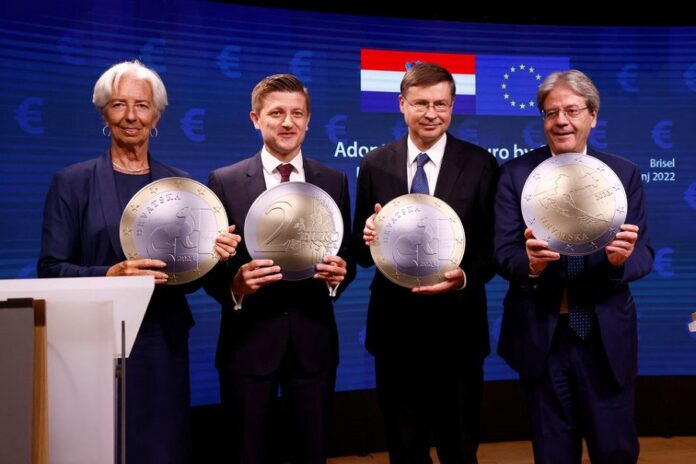European Union finance ministers on Tuesday formally approved Croatia becoming the 20th member of the euro common currency at the start of 2023, according to Reuters.
European Commission Vice President Valdis Dombrovskis said Croatia’s accession confirmed that the euro remained an “attractive, resilient and successful global currency” and a symbol of strength and unity.
“This is particularly important at such a challenging time when Russia’s aggression against Ukraine continues to send shock waves around the world,” Dombrovskis told a ceremony to mark Croatia’s accession, the euro zone’s first expansion since 2015.
The European Council, the grouping of 27 EU governments, adopted three legal acts required to allow Croatia – an EU member state since 2013 – to introduce the euro from January 2023.
One of those acts set the conversion rate for entry at one euro to 7.53450 Croatian kuna, with Croatia now having a few months to prepare the practicalities for the currency switch.
Croatian Finance Minister Zdravko Maric described the EU’s green light to adopt the euro as a “big historical day” for his country, whose stunning Adriatic coast is a major tourist destination.
EU Economy Commissioner Paulo Gentiloni hailed Croatia’s imminent entry into the euro zone as an “extraordinary result.”
To adopt the euro, Croatia had to fulfil criteria of price and exchange rate stability, sound public finances and moderate long-term interest rates, all measured against EU benchmarks.


